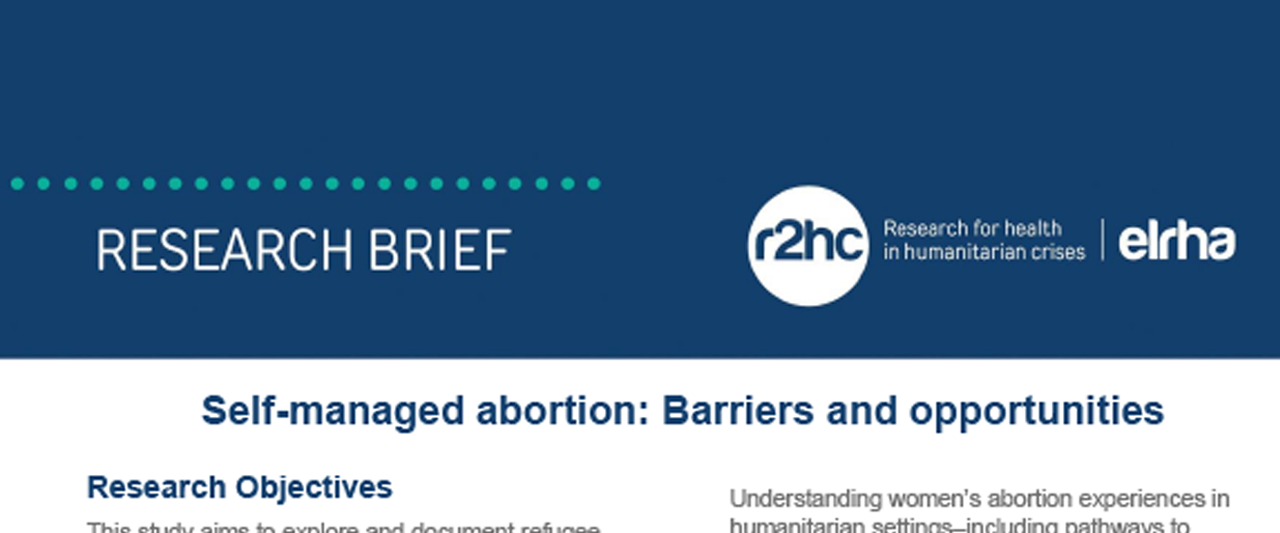Self-managed abortion: Barriers and opportunities
Background
Approximately 60% of maternal deaths take place in settings affected by conflict, displacement, and natural disaster. Displaced and conflict-affected women and girls may be at increased risk of the consequences of lack of access to abortion care, including forced childbearing, and morbidity and mortality related to unsafe abortion. Despite the many calls for additional research, funding, and attention towards provision of safe abortion services for women living in humanitarian contexts, little is known about the abortion experiences or the barriers and facilitators to expanding abortion access in these contexts.
Objective
This study will document the abortion experiences of displaced women and girls with a focus on self-managed abortion and information access in Kakuma Refugee Camp (Kenya) and Bidi Bidi Refugee Settlement (Uganda).
Methodology
Research will examine differences in abortion experience based on displacement, humanitarian setting, and legal context, and estimate the abortion incidence, rate, and ratio using respondent-driven sampling (RDS) and an innovative adaptation of the abortion incidence complications methodology (AICM). Formative research activities will be conducted in 2021, with full-scale data collection launching in late 2021.
For more information on this study, email Tamara Fetters: [email protected]


